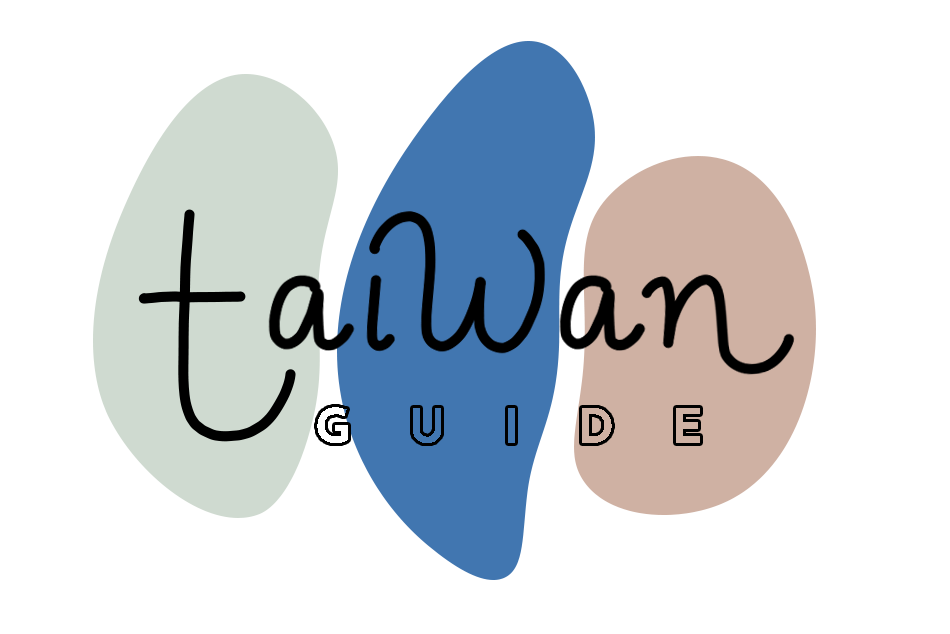北 | TAIPEI DATONG
DA DAO CHENG 大稻埕
a guide to the oldest street in taipei
Da Dao Cheng (大稻埕) is one of the oldest neighborhoods in Taipei, and its main street, Dihua Street (迪化街) is both a historic tourist sight and a lively center for local life. The name stems from its earliest days as farmland for rice (dao 稻 meaning rice grains) and later as mills and warehouses for rice. It’s perhaps the main attraction in Datong district, occupying the southwest portion of the district extending about half a kilometer in from the Tamsui River.
Once a thriving merchant district and trading port in the 1800s with its riverside location, the neighborhood fell into disarray as the city expanded and the commercial center shifted to other parts of town. Over the past decade or so, with investment from the local government, it’s been restored to its former glory, cobwebs dusted off so the historic charm of Qing dynasty architecture can shine through.
Today, the neighborhood is once again bustling with activity, a cultural hub filled with new generations of local businesses in traditional Taiwanese shophouses. Dihua Street offers a glimpse into Taipei’s history, lined with old brick buildings adorned with lanterns and murals in narrow alleys and covered walkways, nodding to its colorful past. The neighborhood has always been known for the many traditional Chinese medicine shops, tea houses and fabric stores, which remain a core part of the mix alongside the contemporary additions of hip cafes, gift shops, boutiques and galleries as new tenants in the restored buildings. It’s a mix of old and new, east and west, with the many generations of cultural and economic influences recorded in its architecture, and the new complementing the old in a respectful way.
Both a heritage site and a shopping area, Dao Dao Cheng is a must-visit for tourists as much as it is a regular rotation for locals. The ambience is on point, and there’s almost always some kind of activity happening around Yong Le Market. Whether you’re shopping for Chinese herbs or looking for an artisanal souvenir, grabbing a bite of street food or seeking contemporary art and ceramics, there’s much to discover in just a few blocks.
[ GETTING HERE ]
While there isn’t an MRT station that drops you right in the center of the action, it is still pretty accessible through public transit.
From the northern end you can take the yellow Zhonghe-Xinlu line to Daqiaotou, use exit 1 and walk west on Minquan West Rd until you reach Dihua Street. You’ll be at the picturesque northern edge of the shopping district, which will be much more quiet until you make your way further down.
From the southern end, take the green Songshan-Xindian line to Beimen, use exit 3 and walk up Tacheng St which will turn into Dihua Street. You’ll know you’re there when you see Yongle Market and the bustle around Nanjing West Road.
There are also plenty of buses along Yanping Street that runs parallel to Dihua Street. On a nicer day, it’s also a good walk or bike to Shuanglian or Zhongshan (red and green lines).

points of interest
da dao cheng plaza & yong le market 永樂市場
In the heart of Dihua Street is Yong Le Market. The market was once the a hub for the textile industry in Taiwan. Today, it still has many fabric vendors occupying the second floor where you can order custom textile goods from local merchants, and has become a commercial and cultural hub for the neighborhood. The first floor is a traditional food market, with many popular vendors of Taiwanese specialties. There’s also a theater and gallery space, and the plaza in the front often hosts open craft markets and community art shows.
The block around the market is an anchor for Dihua Street, with the visitor center across the street and Xiahai City God Temple on the other end. Surrounding the plaza is beautifully preserved architecture from the 1800s and colonial eras, a historic post office, tea houses and many shops occupying the buildings. There’s also ample street food, with local favorites that have been around for generations, as well as contemporary additions of other snacks, desserts, drinks and more. On a nice day, you’ll see a healthy flow of traffic in and out of the market in the morning, people dining in the street tables and hanging out in the plaza in the afternoons, and always plenty of activity around the temple.
architecture
Dihua Street is a treasure trove of historic architecture, with well-preserved examples of the many cultural influences the city has seen over the centuries.
One of the most prominent are traditional Taiwanese courtyard houses, or si he yuan. These houses have a rectangular layout with a small central open air courtyard. Many along Dihua Street have been converted into shops, galleries, cafes and the occasional bed and breakfast inviting visitors to take a step into the past.
Fujian style homes exist alongside Japanese baroque revival style buildings that came during the Japanese colonial period. Other buildings exhibit western influences, modernist stone facades with distinctive embellishments, and some more contemporary constructions all crowded around the narrow street (the width of the street preserved from Qing dynasty times).
On the northern end of the street there’s a preserved heritage building, a picturesque restored brick block of shops with an internal courtyard, and a popular spot for photoshoots.
TRaditional Chinese Medicine Shops 生藥行
(& other dried goods and bulk foods)
Dihua Street is known for the many traditional Chinese medicine shops and dried goods merchants, which have been an integral part of the neighborhood’s trade and commerce history and continue to occupy a core presence on the street. The traditional Chinese medicine shops cater to local and visiting consumers seeking medicinal herbs, dried roots and consulting renowned herbalists for tailored remedies. Many of the family owned shops retain decades old interiors, passed down through generations along with the ancient knowledge of herbal medicine.
Throughout the neighborhood are also many shops specializing in dried goods, often in bulk form. From dried fruits, nuts and spices to dried seafood, mushrooms and borderline alarming amounts of alliums, it’s a one stop shop for many ingredients foundational to Taiwanese cooking.
DA DAO CHENG WHARF 大稻埕碼頭廣場
Situated along the Tamsui River, Da Dao Cheng Wharf was once a bustling port and trading hub in the 1800s, facilitating the transport of various commodities in and out of Taipei. After decades of neglect, the wharf has been revitalized into a waterfront park and promenade with panoramic views of the river and city beyond. In recent years, it’s become a popular spot for walking and biking, and a gathering place on the weekends and holidays, with food vendors and tables for families to hang. It’s also often a venue for cultural programming.
Lunar new year market 年貨大街
Da Dao Cheng is a cultural playground any time of year, but it truly comes to life in its best self in the weeks leading up to Lunar New Year. The street is decorated with festive reds and yellows and the zodiac animal motif, the vendors line the street with traditional holiday goods and sweets, and nearly all the shops offer specialty packaged goods, seasonal freebies like red envelopes. A tradition that has lasted generations and continues to be an exciting joyous affair for the city each winter.
During these weeks, the street transforms into a vibrant marketplace, closed off from traffic with temporary stalls flooding into the street. It’s the most crowded time of year, packed with people stocking up with traditional goods, auspicious decorations and classic seasonal treats before the shops close for the holiday.
Museums & Galleries
The museums and galleries in the area are always changing. In addition to exhibitions that overview the history of the neighborhood, there’s often galleries that showcase traditional crafts and contemporary art.
SHOPPING
Dihua Street is, at its core, a commerce street. So shopping is the main activity, and it comes in several forms.
CERAMICS & HOME GOODS
Along the street are several shops specializing in locally made ceramics at a range of prices from everyday use to artist crafted original pieces. Tea sets that range from classic to contemporary designs. There are also several shops for home goods, wooden and bamboo crafts, and other locally made cookware and kitchen utensils. Some of the shops also offer custom design services.
GIFTS & SOUVENIRS
There are also many gift shops and boutiques perfect for picking up a tasteful (and tasty) souvenir. From knick knacks and postcards to hand poured soaps and loose leaf tea, there’s something for everyone.
Many artisanal local brands have also opened up shop in the neighborhood, bringing in a new generation of high quality goods to the mix.
For food lovers there’s plenty to explore, with quality ingredients for cooking (think noodles, chili crisp), as well as ready to eat snacks like (think dried fruit, nougats) and various traditional baked goods and giftable fare at specialty bakeries.
EATING
When it comes to restaurants and tea houses in the neighborhood, many are family-owned and maintain old school traditions. But in recent years, it’s also become a burgeoning neighborhood for third wave establishments as next generation entrepreneurs breathe new life into old family homes, opening up contemporary cafes and eateries in the historic shops.
There’s also plenty of casual bites, from take out counters of sweet treats to traditional street vendors to longtime hole in wall establishments serving up no frills Taiwanese xiao chi. In the alleys surrounding there are some old school noodle shops, bakeries and other specialty eateries for a quick meal.

places
EAT & DRINK
- Rice and Shine 稻舍食館
- Lin He Oil Rice 林合發油飯店
- Yi Mian King 意麵王
- Wan Fu Noodles 萬福餡餅店
- Old Bamboo Bao 老竹子三發包子
- La A Bei 老阿伯胖魷焿
- Beaver Dim Sum 貍小籠點心專門店
- Fisherman Gan Lin 漁匠甘霖
- Miaokou Bao 妙口四神湯.肉包專賣店
- The Carp 鯉魚
- RULI Tapioca balls
COFFEE & TEA
- Three Leafs 三葉茶食
- BOPOMOO 波波畝 café
- South Street Delight Tea House
- Happy Desserts 幸福甜品茶米露
- Modern Mode Cafe
- TWATUTIA Coffee & Co.
- 春天家 haruya.cafe
- 恆樂茶空間工作室 Hence Love
SHOPS
Food
- Lin’s Wagashi Confectionery 滋養和菓子
- A-Ma Spices
- PaMi Noodles 曾拌麵
- 富自山中FullMountain
Home
- 陸寶LOHAS Pottery迪化半日店
- 民藝埕 ArtYard
- Grandma’s Kitchen
- Yonshin 永興農具工廠
Gifts
- Da Chun Soap
- 印花作夥 inBlooom Together
- OMAKE TAIWAN
- 稻岸 concept store
- Lee Rih Sheng 李日勝
- TAIWAN BUSSAN


